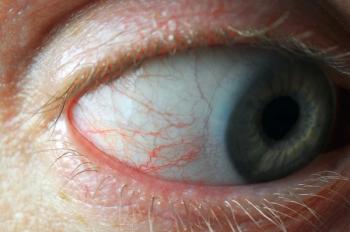
Nutritional supplements promote eye health
It's likely that most of your patients don't obtain enough of the antioxidants and vitamins crucial for eye health through their usual diets.
New York-It's likely that most of your patients don't obtain enough of the antioxidants and vitamins crucial for eye health through their usual diets. Most would benefit from nutritional supplementation, according to Jeffry D. Gerson, OD, FAAO, a private practitioner at WestGlen Eyecare, Shawnee, KS. Dr. Gerson was speaking here at Vision Expo East.
Ask about diet
Dr. Gerson said that although antioxidants, such as lutein and zeaxanthin, have been making headlines recently with their potential benefits to macular pigment density, just about every vitamin plays a role in good ocular health.
For example, a lack of vitamin A can contribute to mucin-deficient dry eyes, short tear break-up time, and difficulty with dark adaptation. The B vitamins are being studied for the role they may play in decreasing the risk of age-related macular degeneration, and vitamin C can be found in nearly all eye tissues.
Overcoming insufficiency
A good diet is the best way to ensure a proper intake of vitamins, but patients don't always eat what's good for them, Dr. Gerson noted. That's where supplementation comes in. Although no supplement is as good as ingestion through diet, supplements can help you overcome a dietary insufficiency.
Don't undertake supplementation haphazardly, Dr. Gerson said. Educate yourself before talking to your patients about supplementation so that you know the appropriate doses for vitamins and antioxidants. Know how much of a supplement is beneficial versus how much is wasteful.
"An ounce of prevention is worth a pound of cure, but a pound of prevention is often worth that same pound of cure," he said. "You can give someone all the vitamin C in the world, but at some point they stop absorbing [it] and they're not getting any more benefit."
He advised clinicians to examine patients' supplement regimens not only to ensure that they're getting the proper mix of vitamins and antioxidants, but also to help boost compliance by limiting the number of pills.
"In many cases, you can help patients not by adding supplements but by taking them away," Dr. Gerson said. "For example, if a patients is [taking] six different supplement pills, there's very likely some overlap. They may be taking a multivitamin and an eye health formula supplement, so they may not need to take a separate vitamin C or lutein supplement-they're already getting all they need. In many cases you can reduce or maintain the total number of pills a patient is taking, yet get a much more effective mix."
Newsletter
Want more insights like this? Subscribe to Optometry Times and get clinical pearls and practice tips delivered straight to your inbox.















































